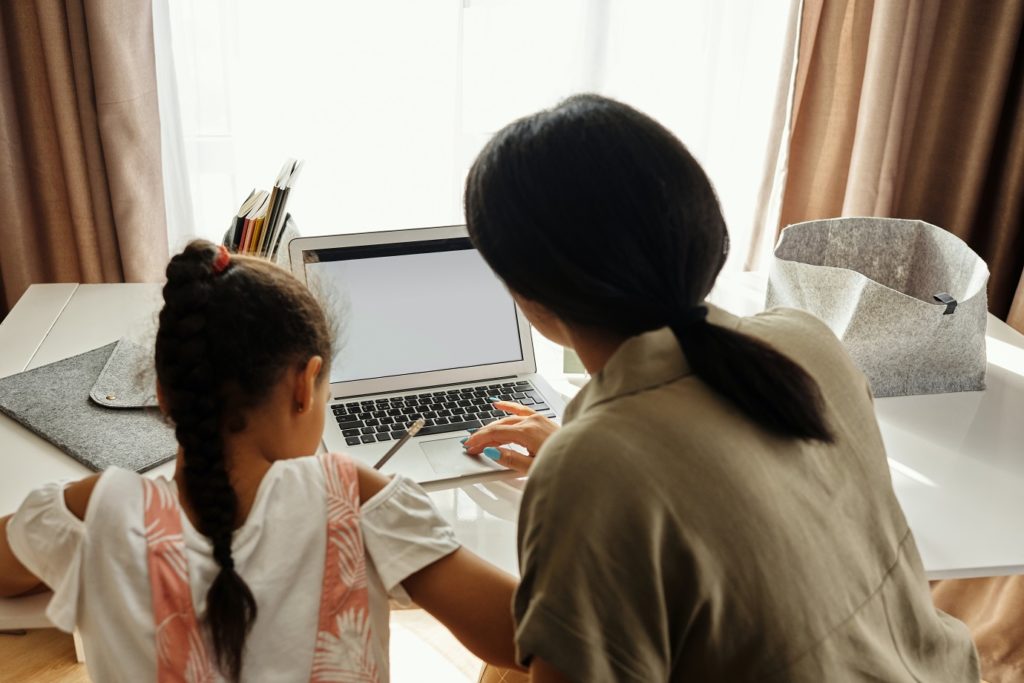Last year Dominque Barker, a 34-year-old Melbourne-based mother of two who works in the higher education sector, was inspired to take action. Having moved to Australia from New Zealand, Barker and her partner were dependent on long-day childcare as they both work full time and don’t have family close by to help fill in the gaps. But the cost was crippling.
“My out-of-pocket expenses were more than my mortgage payment,” says Barker. “I had a good job, but, even then, childcare was unaffordable”.
After the birth of her second child, Barker and her partner opted to transfer their children to a non-profit childcare centre in Port Melbourne because it received funding from the local council. The savings of roughly $50 a week “really added up”, says Barker.
“The private centre where we sent my eldest would hike up the fees every year,” she adds. “One year, they raised the fees by $120 a week!”
Last year, when Port Melbourne considered withdrawing funding for childcare (eight centres would have been affected), Barker decided to fight her and other local parents’ corner. She started a petition. She attended local council meetings. She gathered a tribe of like-minded parents. And she succeeded: earlier this year the council opted to continue with the funding.
But now that Barker has had a taste for life as a “parent activist” she says there’s no going back. She plans to continue to take up the fight for more family friendly workplace practices and public policies — and she suspects a growing army of other parents will join her.
If anything, recent events related to the pandemic – when, for some, chid-care and school fell away completely and was then free for a brief moment of time– have further galvanised parents like Barker.
“To give us a taste that things could be different and then take that away – that was harsh,” says Barker.
Blake Woodward, a 38-year-old Sydney based father of two who works as a management consultant, says he became a “parent activist” around the same time he became a father in 2016. At the time, both Woodward and his wife worked for the same firm, which offered generous parental leave arrangements.
Woodward says he always planned to take full advantage of the available parental leave, both because he wanted to be an active and involved father and because he wanted to support his wife’s career. She was on track for a major promotion.
“Becoming a hands-on dad, I assumed that there would be lots of resources out there for dads like me, like there were for my wife when she was on parental leave,” says Woodward. “I soon realised that there wasn’t really anything, so I started Suit Tie Stroller to fill the gap.” Suit Tie Stroller is “rewriting social norms” around dads, according to its website.
“But then I realised that our workplace and public policies often miss dads,” he adds. “We’re still below 50 percent of organisations offering a parental leave policy — and far too many define the ‘primary carer’ as the mother.”
“I realised we needed more than resources,” says Woodward. “We needed advocacy to tackle some of the gendered norms that inform these policies around parenting.”
Since then, Woodward has done his bit, along with a growing cohort of dads, including Luke Benedictus and business partners Jeremy MacVean and Andrew McUtchen, who founded Father Hood, a new media outlet focused on “celebrating and advocating on behalf of modern fathers”.
Pandemic highlights appetite for change
Even before the pandemic, working parents were buckling under the strain of the so-called “juggle”. In 2019, the social enterprise Parents at Work , another organisation advocating on behalf of parents, released its National Working Families Report which indicated that 2/3 of working parents were struggling to care for their physical and mental health due to work and caring. One in four were thinking about quitting or “actively intending to leave” their job.
And that was before COVID arrived on Australian shores. After seven months of lockdowns, school closures and home-schooling, I shudder to think what a similar mid-pandemic survey might reveal. (Women’s Agenda has covered expert warnings of the long-term consequences of “pandemic parental burnout” as part of this ongoing series on the gendered impacts of the pandemic.)
Now the question is: to what extent has the pandemic further elevated those issues of particular concern to parents — and the ways public policies and workplace practices either undermine or support them. And to what extent has it inspired more parents to fight their corner?
Parents, a significant cohort
Consider this: adults in families with dependent children are roughly 1/5 of the working age population in Australia. Put crudely, that’s too many people for either employers who are hiring or politicians seeking re-election to ignore. With that in mind, conditions may now be ideal for a “parent’s revolution” say many parents and experts Women’s Agenda spoke to.
“They are a significant cohort,” says Professor Leah Ruppanner, an Associate Professor of Sociology at the University of Melbourne who studies parents and work extensively. “Imagine if they all got together and said, these things matter to me.”
After making that comment, Ruppanner briefly mused on the possibility of a “Parent’s Strike”, much like the famous Icelandic Women’s Strike exactly 45 years ago this year. Wishful thinking, maybe. But wouldn’t that be something?
“It’s already is a movement,” says Emma Walsh, Founder and CEO of Parents at Work. “It’s happening in households, workplaces and with individuals across the country who are coming together and insisting on change; COVID made the challenge of balancing work and care incredibly obvious to everyone.”
Treasurer Josh Frydenberg may have also (inadvertently) highlighted the potential leveraging power of parents as a cohort when – shortly before the 2020 budget was unveiled, which, once again, contained overly optimistic projections about Australia’s birth-rate that is so fundamental to economic growth – he encouraged the people of Australia to have “one for country”.
Who would blame parents for replying: “All righty, but here’s what we want in return.”
Childcare: unprecedented momentum
The most obvious issue of concern to parents — now more top of mind than ever due to the pandemic — is the cost and availability of childcare.
“Often issues are bubbling underneath the surface and it takes events to reveal them,” says Jay Weatherill, the former Premier of South Australia who was recently appointed the CEO of Thrive by Five, an initiative launched by the Minderoo Foundation earlier this year aimed at ensuring all Australian children have the best start to life by investing in, and advocating for, effective early childhood development outcomes. “The pandemic has put early childhood on the agenda – COVID has caused us to reflect on the development of our children and the domestic sphere has become very front of mind.”
Parents, according to Weatherill, are increasingly mobilising around these issues. He says that the pandemic has highlighted the size and scope of the cost burden that falls on families, the extent to which the lack of affordable, accessible childcare can be a “career killer”, particularly for women, the limited “old-fashioned” thinking that children don’t learn until they go to school, and the brief experiment with free childcare proved radical change (almost overnight) is possible.
Add to that the fact that the briefly available “free” childcare was rescinded so quickly, there’s an element of “adding insult to injury”, says Weatherill, that can be very motiving.
“The impression I get is that this is an issue that is not going away,” he says. “There is a powerful constituency for change.”
That constituency is evidenced by the unprecedented coalition from across the political and social spectrum that have lined up behind Thrive by Five, and the extent to which Labor has seized on the issue, making it the central plank of its’ budget reply speech.
The Way We Were? No thanks
“The pandemic has shown us that a lot of the ideas we have about what it takes to be ‘the ideal worker’ –presenteeism, long hours – are, in fact, myths”, says Ruppanner. “That is creating a catalyst; many parents, mothers and fathers, are increasingly saying it no longer works for them to work this way.” Indeed, many of us have been working from home for the better part of seven months, and the sky did not fall in.
A major survey of dads at the height of COVID conducted by Woodward of Suit Tie Stroller certainly bears that out. Only 3 percent of fathers wanted life and work to return to the way they were before the pandemic. Nearly three out of four dads living with their kids were more involved in caring and domestic work; one in two wanted to maintain that increased involvement, and two out of three wanted to spend more time with their kids in “the new normal”.
The key question, will they actively advocate on their own behalf and take steps to make their desired “new normal” a reality. Yes, says Woodward, the founder of Suit Tie Stroller. According to the survey, nearly three out of four were planning to change their employment conditions, one out of three change employer and one out of five relocate their place of residence.
A broader reckoning
The pandemic is, indeed, forcing a broader reckoning of public policy and workplace practices that profoundly impact individual parent’s ability to work and care. It is also facilitating a reckoning on the home front, with some (yes not all) fathers in opposite gender couples stepping up and taking on more of the load at home.
There is still a so-called chores gap, as women have taken on even more. But there is also an obvious desire among families comprised of two opposite gender parents to preserve some of those gains. If they have to take on employers and public policy makers to advocate for more gender-neutral flexible work policies and parental leave policies to make that a reality, that’s a hill many say they are increasingly willing to die on.
To help facilitate that reckoning, Parents at Work last week launched a task force comprised of Australia’s leading agencies dedicated to supporting families to deliver Work and Family Standards in Australia.
“Australia doesn’t have a work and family policy framework,” says Walsh. “It’s dispersed across government department, with different employers doing different; nothing is being done in a coordinated way and that needs to change.”
“We have a unique opportunity to capitalise (on the strength of feeling arising from the pandemic)”, adds Walsh. “We have to galvanize that.”
Walsh, it would seem, is not alone in that thinking.
Kristine Ziwica is a regular contributor. She tweets @KZiwica
This is part eight of a series of pieces Kristine Ziwica is producing on how COVID-19 is impacting women in Australia. The series is supported by the Judith Neilson Institute for Journalism and Ideas.



